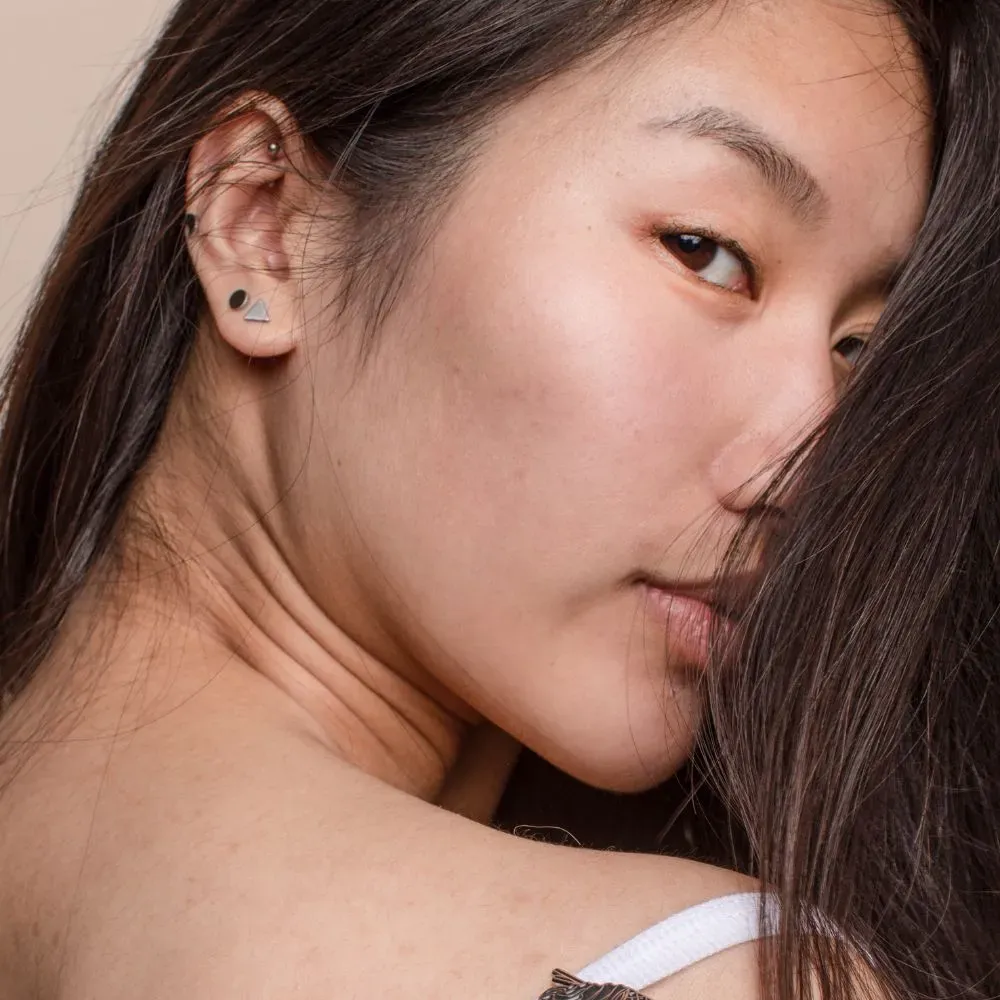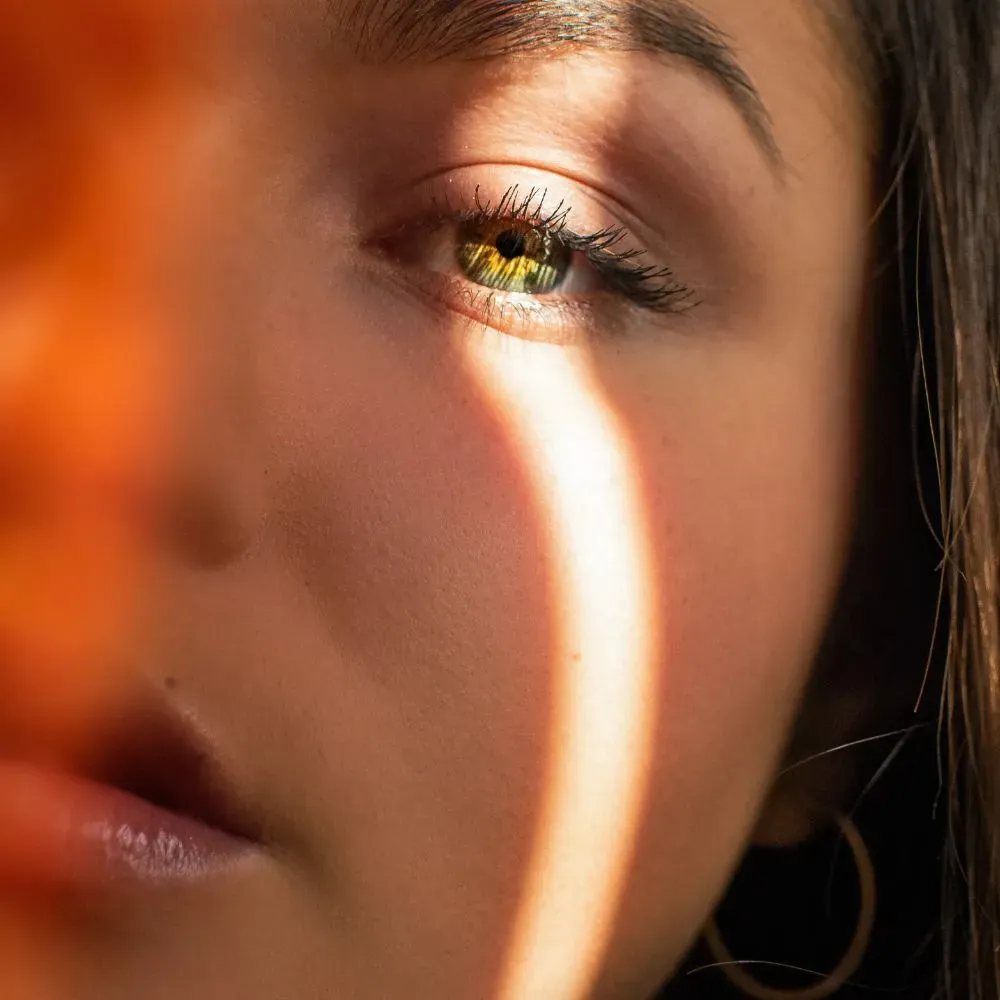Introduction
Welcome to our buyer's guide on the best skin lightening creams! If you're looking for a way to brighten your complexion and reduce the appearance of dark spots, hyperpigmentation, or uneven skin tone, then this guide is for you.
In this guide, we'll provide you with comprehensive information about skin lightening creams. We'll cover different types of ingredients, their benefits, and how they work. We'll also take a closer look at important factors to consider when choosing a skin lightening cream such as skin type, safety, and brand reputation.

Using skin lightening creams can provide numerous benefits, including brighter, more even-toned skin. They can also help boost confidence by reducing the appearance of imperfections. However, not all skin lightening products are created equal, and choosing the wrong product may cause more harm than good.
By following our guide, you'll be able to make an informed decision when choosing a skin lightening cream that is safe and effective for your skin type. We'll also provide you with a list of top products to consider, so you can find the perfect match for your skin needs.
What are Skin Lightening Creams?
Skin lightening creams are topical products specifically formulated to reduce the appearance of dark spots, hyperpigmentation, and uneven skin tone. These creams work by targeting the production of melanin, the pigment responsible for our skin color, and inhibiting its formation, resulting in a brighter and more even complexion.

How Skin Lightening Creams Work?
The primary mechanism behind skin lightening creams is the inhibition of an enzyme called tyrosinase, which plays a crucial role in the production of melanin. By reducing the activity of tyrosinase, these creams help decrease melanin production, leading to a lighter and more even skin tone.
Some skin lightening creams also work by exfoliating the skin's outer layer, removing dead skin cells and revealing a fresher, brighter layer of skin underneath. This not only helps to reduce the appearance of dark spots but also promotes a smoother, more radiant complexion.
Types of Ingredients Used in Skin Lightening Creams
There are various ingredients commonly found in skin lightening creams, each with its own unique properties and benefits. Some of the most popular ingredients include:
Hydroquinone: A synthetic compound that has been widely used in skin lightening products for many years. It works by inhibiting tyrosinase, effectively reducing melanin production. However, due to concerns about its safety, it has been banned in some countries, and its use should be limited to prescription-only products under the guidance of a dermatologist.
Kojic Acid: Derived from fungi, kojic acid is a natural alternative to hydroquinone that also works by inhibiting tyrosinase. It is generally considered safe when used at low concentrations, but it may cause skin irritation in some individuals.

Vitamin C: A potent antioxidant, vitamin C is known for its brightening effects on the skin. It helps to reduce melanin production by inhibiting tyrosinase and also promotes collagen synthesis, improving skin texture and tone.
Arbutin: A natural derivative of hydroquinone, arbutin is found in various plant species such as bearberry, blueberry, and cranberry. It works by slowly releasing hydroquinone, making it a gentler option for sensitive skin types.
Licorice Extract: Derived from the root of the licorice plant, licorice extract contains a compound called glabridin that helps to inhibit tyrosinase activity, reducing melanin production and brightening the skin.
Niacinamide: Also known as vitamin B3, niacinamide is a versatile skincare ingredient that can help improve skin texture, reduce inflammation, and inhibit melanin production, leading to a more even complexion.
When choosing a skin lightening cream, it's essential to consider the ingredients and their potential side effects or interactions with your skin type. Always patch test a product before using it extensively and consult with a dermatologist if you have any concerns.
Factors to Consider When Choosing a Skin Lightening Cream
When searching for the perfect skin lightening cream, there are several factors to consider. These factors will help you make an informed decision and ensure that the product you choose is safe, effective, and suitable for your specific needs.
Skin Type
Your skin type plays a crucial role in determining the effectiveness of a skin lightening cream. Whether you have oily, dry, sensitive, or combination skin, it's essential to choose a product that complements your skin type. For example, if you have sensitive skin, look for creams with gentle, natural ingredients and avoid those containing harsh chemicals that may cause irritation.

Safety and Side Effects
Before using any skin lightening product, it's vital to research its safety and potential side effects. Some ingredients, such as hydroquinone, have been associated with adverse reactions and are banned in some countries. Always opt for products with proven safety records and consult a dermatologist if you have concerns about a specific ingredient or product.
Brand Reputation
The reputation of the brand behind a skin lightening cream is another critical factor to consider. A well-established brand with a history of producing safe and effective skincare products is more likely to offer high-quality skin lightening creams. Research the brand, read customer reviews, and check for any red flags before making a purchase.
Price
Finally, consider the price of the skin lightening cream. While expensive products may not always guarantee better results, extremely cheap creams may contain low-quality ingredients or be less effective. Set a budget and compare products within your price range to find one that offers the best value for money.
By considering these factors, you can find a skin lightening cream that caters to your specific needs and helps you achieve a brighter, more even complexion.

Tips for Using Skin Lightening Creams
To get the most out of your skin lightening cream and achieve the best results, follow these tips:
Proper Application Techniques
Cleanse: Before applying the skin lightening cream, make sure to cleanse your face thoroughly to remove any dirt, oil, or makeup residue. This will allow the cream to penetrate the skin more effectively.
Apply sparingly: Use a small amount of cream and apply it evenly to the affected areas. Avoid applying too much cream at once, as this can lead to irritation or uneven results.
Be consistent: For optimal results, apply the skin lightening cream consistently, as directed by the product instructions. This may be once or twice daily, depending on the product.
Use sunscreen: Since some skin lightening creams can make your skin more sensitive to sunlight, always apply a broad-spectrum sunscreen with an SPF of 30 or higher during the day to protect your skin from harmful UV rays.

Maintenance and Follow-Up Care
Moisturize: Keep your skin hydrated by using a high-quality moisturizer that suits your skin type. Moisturizing regularly can help maintain the overall health and appearance of your skin.
Exfoliate: Gently exfoliate your skin once or twice a week to remove dead skin cells and promote cell turnover. This can help enhance the effectiveness of the skin lightening cream and contribute to a smoother, brighter complexion.
Consult a dermatologist: If you have any concerns about your skin or the progress of your treatment, consult a dermatologist for professional advice and guidance.
Possible Risks and Precautions
Patch test: Before using a new skin lightening cream, perform a patch test on a small area of your skin to check for any adverse reactions. If your skin becomes irritated or develops a rash, discontinue use and consult a dermatologist.
Avoid harmful ingredients: Steer clear of skin lightening creams containing potentially harmful ingredients, such as mercury or high concentrations of hydroquinone, which can cause severe side effects.
Follow product instructions: Always read and follow the product instructions carefully to avoid any complications or adverse reactions.
By following these tips and precautions, you can safely and effectively use skin lightening creams to achieve a brighter, more even complexion.

Top 4 Best Skin Lightening Cream
After thorough research, we have compiled a list of the top 4 skin lightening creams on the market. Please note that the prices mentioned may vary depending on the retailer.
- Do Me - Premium Intimate Skin Lightening Cream
- Dermatrue Collagen Skin Lightening Cream
- CAROTÏS Carotis, Skin Brightening Cream
- Ultra Bright Lightening Cream
These top products offer a variety of options to help you achieve a brighter, more even complexion. Be sure to consult with a dermatologist if you have any concerns or questions about which product is best for your specific needs.
Conclusion
In this guide, we've covered the essential aspects of skin lightening creams, including their definition, how they work, and the various types of ingredients used in these products. We also discussed the factors to consider when choosing a skin lightening cream, such as skin type, safety and side effects
Skin Lightening Cream 101: FAQs About the Best Skin Lightening Cream
Which is better lightening or whitening cream?
This is an important question to consider when it comes to skincare and complexion. Generally speaking, a lightening cream focuses more on reducing pigmentation and evening out your skin tone while a whitening cream is designed mainly to make your skin brighter.
Lightening creams are used mainly to reduce dark spots, imperfections, or any uneven patches of color that arise from sun exposure and acne scarring. Lightening creams contain active ingredients such as hydroquinone, retinol, kojic acid, azelaic acid, and vitamin C which can help reduce the discoloration or darkness caused by these conditions.
These products work by inhibiting the enzyme tyrosinase which helps produce melanin in our bodies. As melanin production slows down gradually over time with continued use of these lighteners, the appearance of dark spots fades away until eventually, they go away entirely. It's important to note that some lighteners may cause temporary redness or peeling in some people with sensitive skin so be sure to use caution when using them and always wear sunscreen!
Whitening creams are formulated specifically for brightening up dull complexions without changing their overall natural tone or coloration much at all. These products usually contain safe ingredients like glycolic acid that gently exfoliate the top layer of the skin safely removing dead cells and revealing younger-looking vibrant new ones underneath; other common whitener ingredient includes alpha hydroxyl acids (AHAs), arbutin extract as well as fruit enzymes like pineapple extract that also help remove soft layers revealing newer lighter layers below them leading to a brighter complexion overall without being damaging nor abrasive on your delicate facial features like many other chemical-loaded alternatives may be prone to causing physical irritation if not worse - avoiding those scenarios should always be a top priority no matter what product type you choose since afterall taking best possible care of yourself both now & long term should always be highest priority!
How can I whiten my skin fast naturally?
Whitening your skin naturally is a process that requires patience and dedication. In order to achieve faster results, the key is to commit to a regular skincare routine that includes natural ingredients with proven whitening benefits.
One of the most effective remedies for whitening your skin involves using lemon juice. Lemon contains citric acid which helps exfoliate the skin and reduce dark spots caused by sun damage or aging. To use this remedy, simply mix freshly squeezed lemon juice with water in a ratio of 1:2 and apply it directly to affected areas where you would like to lighten your complexion. Leave it on for 10 minutes before rinsing it off with cold water – repeat this once every day for at least four weeks for maximum results!
Other popular natural remedies include using turmeric-based masks, apple cider vinegar toners, yogurt facials, orange peel scrubs, baking soda exfoliants, and more! These all contain potent antioxidants that help reverse any sun damage or hyperpigmentation while also boosting circulation in order to create an even tone overall. Additionally, make sure you’re applying sunscreen regularly as well as avoiding processed foods in order to minimize dark spots from forming again after treatment has finished.
Finally, increasing consumption of Vitamin C-rich foods such as oranges and limes will help support collagen production which can help reduce wrinkles while also giving you naturally glowing skin! So don’t forget about nutrition when trying to whiten your complexion too – maintaining a balanced diet filled with fresh fruits & vegetables should always be part of any skincare regimen if you want long-lasting & healthy results!
How long does it take to lighten skin?
The exact length of time it takes to lighten skin depends on many factors, including the individual’s natural skin type and their specific goals when it comes to changing the tone or shade of their complexion. A lightening regimen typically includes a combination of active topical products such as creams, serums, and peels that contain ingredients like hydroquinone, azelaic acid, lactic acid, kojic acid, and arbutin to reduce pigmentation. In addition to these results-driven products, individuals can also use sun protection techniques like wearing sunscreen with SPF 30+ or higher for all outdoor activities as well as hats or umbrellas for extra coverage.
When using a topical product in conjunction with safe sun practices regularly over an extended period of time (usually 1 month or more), most people will begin seeing some degree of improved skin tone within 3-4 weeks but full results may take 6-8 months depending on how dramatic the desired change is. Other treatments such as chemical peels and laser therapy may produce faster visible results than those obtained through topical home care regimens but often come at a much higher cost and many times involve some downtime due to redness/swelling post-treatment.
As far as safety goes - generally speaking - always use reputable brands that contain effective yet medically accepted ingredients when choosing your lightening products; talk with your dermatologist if you are uncertain about any product before trying them; avoid relying heavily on over-the-counter “skin brightening” items with unknown ingredients which could have potentially harmful consequences; practice common sense around exposing your skin too excessively too intense environments like direct sunlight without adequate sun protection etc.
Any significant changes in natural pigment should be discussed first with a trusted medical expert who can help advise you honestly regarding possible risks associated with different forms of “skin lightening” methods so that you can make informed decisions about safely achieving your desired outcomes.

Is it safe to use lightening cream on my private parts?
Using a lightening cream on the private area is not generally recommended, as it can cause skin irritation and damage. This sensitive area's delicate nature should be considered before using any topical products, especially those intended for lighting purposes. Above all else, if you are considering using a lightening cream on your private areas, it is important to consult with your healthcare provider about any safety considerations associated with its use.
Lightening creams commonly contain hydroquinone and its derivatives like kojic acid. While these creams can reduce the amount of melanin in some regions of the body to cause lightening, they can also lead to skin discoloration or rashes due to their acidic nature. They may also cause inflammation or blistering if used improperly or without sufficient moisturization afterward. In addition, when used near the genitals there is a risk that some of the ingredients in these products could become absorbed through the skin into your bloodstream—which could result in systemic side effects such as headaches or nausea after prolonged product use.
For these reasons, many dermatologists discourage people from applying any kind of chemical-based lightening cream/product around one’s private parts due to their potential for causing adverse reactions ranging from an allergic reaction (itching) all the way up through dramatic changes in pigmentation that are not reversible even after discontinuing use of the said product(s). Additionally, research has uncovered possible links between hydroquinone and cancer; consequently, some countries have placed restrictions on availability and usage due to safety concerns related specifically to human health implications—further adding weight behind avoiding such topical formulations regarding one's genitalia-related activities…or lack thereof!
So bottom line: unless you have consulted with a doctor about its usage beforehand (recommended), we strongly advise against applying any type of bleaching cream around your intimate parts since there are numerous potential risks involved that simply cannot be ignored!
Is it good to use a lightening cream?
It depends on the type of lightening cream, as there are various types of products available on the market. Lightening creams can effectively reduce skin darkening and blemishes caused by excessive melanin production, sun damage, age spots or pregnancy mask. However, it is important to determine an appropriate lightening cream for your skin type in order to avoid potential side effects such as redness, rashes or irritation.
The most common active ingredient used in most lightening products is hydroquinone which has been proven to be effective at reducing pigmentation when used cautiously and correctly. Other ingredients that are often found in many products include kojic acid, azelaic acid and alpha arbutin - all of which have an effect on pigment reduction but usually cause fewer side effects than hydroquinone if used properly.
What is the safest skin lightening?
The safest way to lighten your skin is through natural methods. This includes using ingredients such as lemons and honey, which are natural bleaching agents. Applying freshly squeezed lemon juice on the area you want to lighten for 10-15 minutes every day can help reduce pigmentation, while honey has gentle exfoliating properties that help reduce dark spots and even out your skin tone.
Additionally, aloe vera can be used as a moisturizer or a mask with its antioxidant and anti-inflammatory properties that soothe the skin while also fading away discoloration from sun damage. You can make concoctions of these ingredients together for a more potent effect!
In addition to these natural remedies, there are also several topical creams available over-the-counter for people who wish to lighten their skin safely. Some of them contain kojic acid or alpha hydroxy acids (AHAs) like glycolic acid that work by reducing melanin production in the affected areas and suppressing darkening caused by post-inflammatory hyperpigmentation. Make sure you read all labels carefully before buying any product since some may contain harsh chemicals like mercury or steroids which can cause long-term negative health effects; always choose products with safe and mild active ingredients if possible!
Lastly, it’s important to remember that protecting your skin from UV exposure is key to maintaining a healthy complexion no matter what method you use. Wear SPF every day when exposing yourself outdoors or consider getting professional laser treatments done at proper medical facilities for an extra boost in results - just make sure they're supervised by qualified dermatologists!






